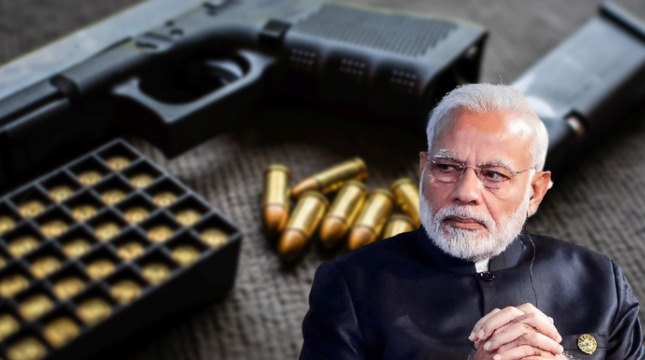- We have witnessed incidents of exodus in Kairana and, most prominently, in Jammu & Kashmir.
- Self-defence can be put up against Islamists if the families in India are allowed legal possession of arms in self-defence.
- India has among the lowest civilian gun ownership in the world.
- The guns laws need to be liberalized depending on the crime rate of the area a person is residing.
The incidents of the internal emigration of Hindus are common in India with the latest being in Bengal after the victory of Mamata Banerjee. Islamists forced the Hindus to move out of the area where their ancestors have lived for centuries for voting Bhartiya Janata Party. Before that, we have seen incidents of exodus in Kairana and, most prominently, in Jammu & Kashmir. Many such incidents which take place at a smaller scale in areas of cities like Mumbai are not even reported.
So, what is the reason behind Hindus surrendering to meekly and leaving the town once Islamists get an upper hand? The Islamists, who are mostly involved in illegal and criminal activities, possess arms illegally and this becomes a threat to the life of Hindus. When the push comes to the shove, the state (which is supposed to provide security to citizens and has a monopoly over violence) fails to discharge its duty as seen in Kashmir, Kairana, and West Bengal, and Hindus are forced to leave the area because they do not have the means of self-defence.
If one remembers the period of Naxalism in Bihar, the people of Ranvir Sena prepared armed militia to fight Naxals and defend their property. Similar defence can be put up against Islamists if the families in India are allowed legal possession of arms in self-defence.
The first law regulating the possession of arms in independent India was introduced in 1959. The Arms Act, 1959 replaced the colonial law Indian Arms Act, 1878 and allowed possession of arms in self-defence but under severe restrictions. The restrictions were further strengthened in 1983 via amendments and the holding of arms was limited to three.
The Modi government made it further difficult to obtain guns legally. The Arms (Amendment) Bill, 2019, introduced in the second term of the Modi government by Home Minister Amit Shah, reduced the number of permitted firearms from three to one including licenses given on inheritance or heirloom basis. Although the period of license duration was increased from three to five years.
Under the new amendment by the Modi government, new offences were introduced, the punishment for holding guns illegally was increased and firearms were banned.
India has among the lowest civilian gun ownership in the world, and that is a good thing as long as the life of the citizens is not under threat from Islamists and other criminal elements of the society. India has around five civilian arms per 100 people and this puts the country 120th in the ranking of the nations with civilian possession of guns.
Northern America (the United States, Canada, and Mexico) has some of the highest civilian guns per capita with the US having 120 guns per 100 people. The United States and Northern Europe have very liberal guns laws and civilian possession of weapons is very high.
While India does not need such high penetration of guns in society, the guns laws need to be liberalized depending on the crime rate of the area a person is residing. If a person lives in an area where criminals, Islamists are in high numbers, the families need possession of guns to ensure that they can put up a defence and not be forced to leave the town or giveaway their earnings. Thus, instead of putting a blanket practical prohibition on possession of arms, the regulations should be on the area to area basis or case to case basis.
